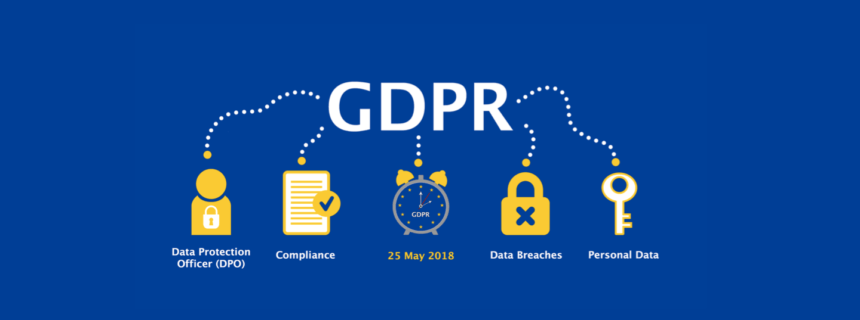Data Governance & GDPR: How it Will Affect Your Business

If you’re a data professional, data governance and GDPR are likely at the top of your agenda right now.
Because if your organization exists within the European Union (EU) or trades with the EU, the General Data Protection Regulation (GDPR) will affect your operations.
Despite this fact, only 6% of organizations say they are “completely prepared” ahead of the mandate’s May 25 effective date, according to the 2018 State of Data Governance Report.
Perhaps some solace can be found in that 39% of those surveyed for the report indicate they are “somewhat prepared,” with 27% starting preparations.
But 11% indicate they are “not prepared at all,” and the most damning of revelations is that 17% of organizations believe GDPR does not affect them.
I’m afraid these folks and their organizations are misguided because any company in any industry is within GDPR’s reach. Even if only one EU citizen’s data is included within an organization’s database(s), compliance is mandatory.
So it’s important for organizations to understand exactly what they need to do before the deadline and the potential fines of up to €20 million or 4% of annual turnover, whichever is greater.
How Does GDPR Affect My Business
With the advent of any new regulation, it’s crucial that organizations know which elements of their organization are affected and what they need to do to stay compliant. Regarding the latter, the GDPR requires organizations to have a comprehensive and effective data governance strategy. In terms of the areas affected, organizations need to be aware of the following:
Personally Identifiable Information (PII)
GDPR introduces tighter regulations around the storage, management and transfer of PII. According to the GDPR, personal data is any information related to a person such as a name, a photo, an email address, bank details, updates on social networking websites, location details, medical information, or a computer IP address.
Personal data also comes in many forms and extends to the combination of different data elements that individually are not PII but contribute to PII status when consolidated.
Data governance allows organizations to more easily identify and classify PII and in turn, introduce appropriate measures to keep it safe.
Therefore, a good data governance solution should enable organizations to add and manage metadata – the data about data – regarding a unit of data’s sensitivity. It should also have strong data discoverability capabilities, and the ability to control access to data through user-based permissions.
Active Consent, Data Processing and the Right to Be Forgotten
GDPR also strengthens the conditions for consent, which must be clear and distinguishable from other matters and provided in an intelligible and easily accessible form, using clear and plain language. It must be as easy to withdraw consent as it is to give it.
Data subjects also have the right to obtain confirmation as to whether their personal data is being processed, where and for what purpose. The data controller must provide a copy of said personal data in an electronic format – free of charge. This change is a dramatic shift in data transparency and consumer empowerment.
The right to be forgotten entitles the data subject to have the data controller erase his/her personal data, cease further dissemination of the data, and potentially have third parties halt processing of the data.
The information and processes required to address these restrictions can be found in the metadata and managed via metadata management tools – a key facet of data governance. Better management of such metadata is key to optimizing an organization’s data processing capabilities. Without such optimization, compliance with the GDPR-granted “right to be forgotten” can become too complex to effectively manage.
Improve Metadata Management and Data Governance
erwin is a Leader in the Gartner 2020 Magic Quadrant for Metadata Management Solutions.
Get the report
Documenting Compliance and Data Breaches
GDPR also looks to curb data breaches that have become more extensive and frequent in recent years. Data’s value has sky-rocketed, making data-driven businesses targets of cyber threats.
Organizations must document what data they have, where it resides, the controls in place to protect it, and the measures that will be taken to address mistakes/breaches. In fact, data breach notification is mandatory within 72 hours if that breach is likely to “result in risk for the rights and freedoms of individuals.”
A comprehensive data governance strategy encompasses and enables the documentation process outlined above. However, a data governance strategy decreases the likelihood of such breaches occurring as it provides organizations with greater insight as to which data should be more closely guarded.
Data Governance and GDPR Compliance
Based on the results of the State of DG Report referenced at the beginning of this post, organizations aren’t as GDPR-ready as they should be. But there’s still time to act.
Data governance and GDPR go hand in hand. A strong data governance program is critical to the data visibility and categorization needed for GDPR compliance. And it will help in assessing and prioritizing data risks and enable easier verification of compliance with GDPR auditors.
Data governance enables an organization to discover, understand, govern and socialize its data assets – not just within IT but across the entire organization. Not only does it encompass data’s current iteration but also its entire lineage and connections through the data ecosystem.
Understanding data lineage is absolutely necessary in the context of GDPR. Take the right to be forgotten, for example. Such compliance requires an organization to locate all an individual’s PII and any information that can be cross-referenced with other data points to become PII.
With the right data governance approach and supporting technology, organizations can ensure GDPR compliance with their current, as-is architecture and data assets – and ensure new data sources and/or changes to the to-be architecture incorporate the appropriate controls.
Stakeholders across the enterprise need to be GDPR aware and enabled so that compliance is built in at a cultural level.
For more information about increasing your expertise in relation to data governance and GDPR, download our guide to managing GDPR with data governance.
The erwin Expert Guide to Managing DPR with Data Governance
With the advent of GDPR (and soon,CCPA), data governance is becoming increasingly important to organizations both in and outside of the EU.
Get the white paper
